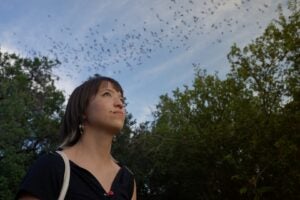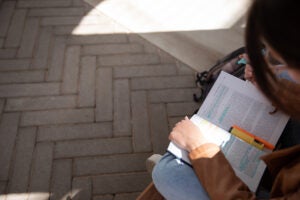AUSTIN, Texas—Forget those television ads featuring svelte personal trainers hawking the latest suburban gym chain. Dr. Bob Spina, a UT Austin exercise physiologist, has a better nine-month offer, and it’s free.
About 50 women between the ages of 60 and 72 will have the opportunity to volunteer for a special $1.1 million National Institutes of Health research project, which will study the effects of exercise training or female hormone replacement therapy (estrogen and progestin) on improving heart and cardiovascular fitness.
“We expect to be able to improve the quality of life of most of our research participants,” said Spina, who cited similar health studies showing that either exercise or hormone replacement therapy significantly reduce the risk of heart disease after menopause.
“This exercise regimen tends to offset, and help prevent, some of the degenerative diseases that were once thought to be inevitable consequences of aging,” he added.
Volunteers will meet four times a week in Spina’s kinesiology and health education department exercise laboratory in Belmont Hall, following a free medical screening, including Dr. Paul Roach, cardiologist, and Dr. Robert Cowan, gynecologist.
Kathleen Wood, a St. David’s Medical Center RN, also will help supervise each personal health training session.
“We want our women volunteers to know that we’re always concerned about helping them to increase their general health through fitness,” says Spina, who already has signed up former Austin legislator Wilhelmina Delco as his first participant.
“I believe it’s important for women from all of Austin’s communities to take advantage of regular medical screening and be able to learn more about living a longer, happier life due to supervised exercise that’s tailored to my age group,” she said.
Delco and impending research volunteers fit the desired admission profile: non-smokers who are not on heart medications, who don’t take estrogen (although it is available once admitted to the study) and don’t exercise regularly.
To volunteer, interested women should call (512) 471-8594 for an appointment.
Spina’s call for mature women participants arrives just one week after the U.S. Dept. of Health and Human Services reported that the nation had only met 15 percent of its health goals for the year 2000, even though they were set 20 years ago.
Some progress was made on 44 percent of the goals.
Officials had hoped that the Healthy People 2000 Review would affect overweight Americans in two decades; instead, the number of overweight citizens rose to 35 percent by 1995, the latest year for which data was given. More than half of all Hispanic and African American women adults are overweight in several health categories.
Spina estimates that Americans are spending more than $33 billion a year on dieting products and services. He joined the UT Austin faculty one year ago after 11 years as an exercise physiologist on the medical staff at the Washington University School of Medicine in St. Louis.
He also has been tapped to head a proposed Texas Fitness for Life Center, which now is under development at the Austin campus.



